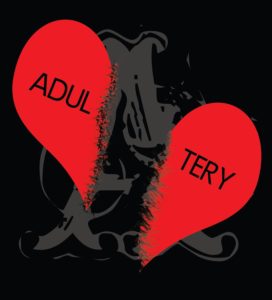If you have ever wondered what’s in a name, the answer for some people is ‘plenty‘. Although Shakespeare’s Juliet argues that ‘names do not matter, only what is,’ for many of you dealing with adultery, names do matter.
You assume that if you can put a name on what your spouse is doing, somehow it explains what happened. By calling what the cheater does as ‘narcissism”, “sexual addiction”, “love addiction”, or some other label, you assume that by giving what they are doing a name, it helps take away the pain and explain things.
It gives you a way to love the cheater, yet hate what has come over them. There’s a hope that if what the cheater did, is a disorder with a name, that it makes your situation more tolerable.
Attaching names only gives the illusion of explanation and control. The reality is that they cheated. They lied. They betrayed the trust that you placed in them. They did you wrong.
All those things add up to a pattern of behaviors and actions. Those actions created space or distance between the two of you.
Having a name to put the blame on for what happened, doesn’t erase the distance that now exists between the two of you. It doesn’t change what they did.
Juliet was right in saying that what matters is ‘what is’. In the case of adultery, the ‘what is’ consists of what the cheater did.
What promises they violated.
What they lied about.
Seeking an explanation for what happened is a natural reaction. You may hope that if it is an illness, with a name, that there’s a ‘cure’. Just because it has a name doesn’t mean that there is a cure.
By putting a name on what they did, it gives you mental and emotional training wheels to start making sense out of what happened. You still a way of dealing with what happened.
The training wheels can become a crutch. When you focus excessively on ‘narcissists’ (or whatever your favorite label is), it starts letting the cheater off the hook.
You start blaming ‘the disease’ rather than holding them accountable for their actions, lies, and deceitful living. In a relationship, you and your spouse use your behaviors and words to draw closer to each other or push each other away.
In undoing the damage of an affair, you will have to look at specific behaviors that each of you keep doing and find ways of changing those patterns. Consider what it will take to change the patterns of behaviors in your marriage. That will bring more change than understanding the latest label or diagnosis that may explain what the cheater did.
In the downloadable ‘Affair Recovery Workshop‘ I go into the names for the cheater and yourself for that matter. The impact of those names shapes your dealing with what happened.
What you call them and what happened programs your brain in terms of the solutions and choices you can see. What you are calling things may actually be making matters worse. Order the workshop and start your recovery.
Best Regards,
Jeff
















